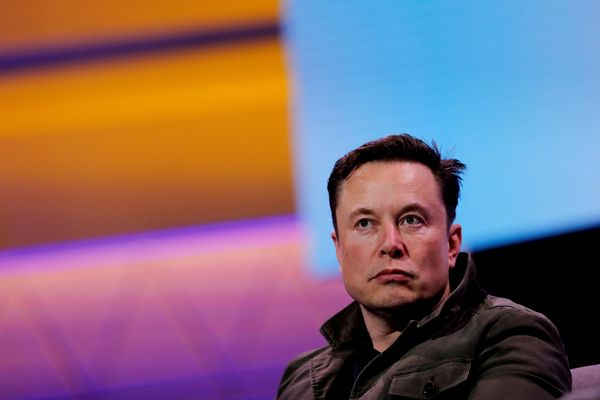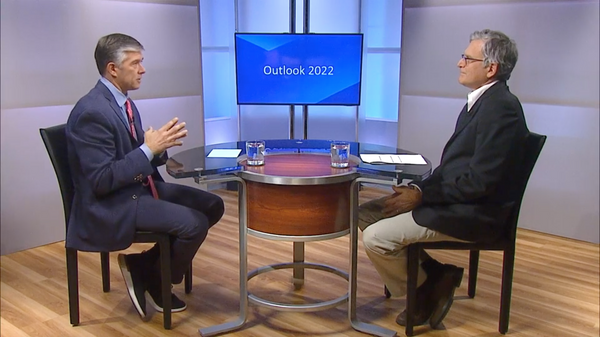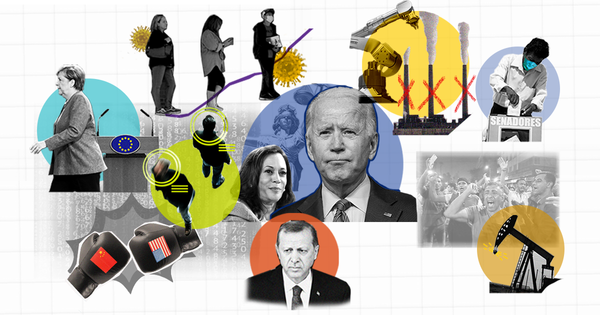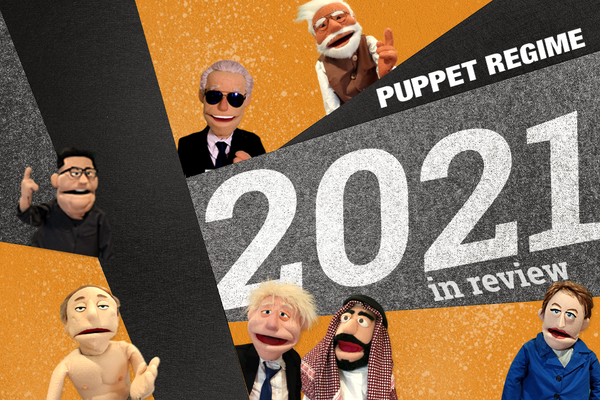At the start of 2021, Eurasia Group, our parent company, released its predictions for the top 10 geopolitical risk stories of the year ahead. The report tried to answer many questions. What major issues will a post-Merkel Europe contend with? Will crisis-ridden Latin America emerge from the pandemic in far worse shape? How will US President Biden govern in a country where roughly half the population deems his presidency illegitimate?
As 2021 draws to a close, we take a look at how some of the report’s forecasts have stacked up, and where things might be headed in 2022.
Joe Biden: The asterisk president
Biden won more than 81 million votes in the 2020 presidential election, the most of any presidential candidate in US history. Would it be enough to lend his presidency an air of legitimacy after his predecessor’s claims of electoral inconsistencies?
The answer became urgently clear on January 6, 2021, when Trump-supporting rioters stormed the US Capitol, leading to destruction and several deaths that will forever mar the record of American democracy.
It’s not just the rioters who have their doubts. A new poll released Tuesday found that 71 percent of Republicans – one-third of the nation – say they still don’t believe Biden’s win was legitimate.
Political polarization has deepened further throughout 2021. Getting a COVID vaccine – or not – has become a political statement. Some 60 percent of Republicans remain unvaccinated, compared to just 17 percent of Democrats. This phenomenon is also reflected in vastly different perceptions of the state of the economic recovery, which remain divided along party lines.
As Trump maintains a stranglehold on the GOP, many Republican politicians realize that fealty to the former president is the only way to ensure their continued political survival. (Just ask Congresswoman Liz Cheney, who was removed from her leadership position after rallying against the former president for encouraging the Capitol riot.)
A Merkel-less Europe
Angela Merkel has been Europe’s point person for the past 15 years, while steering the EU through a range of challenges, including the 2009 Eurozone sovereign debt crisis, as well as a massive refugee wave in 2015 that gave rise to a populist tide across much of the continent.
Now, as the omicron wave pummels Europe, the challenges facing the Union are mounting. As rolling lockdowns continue, will the promised economic relief, made possible in part by Merkel’s leadership, be effectively distributed in coming years? Who will manage EU relations with illiberal governments in Hungary and Poland whose COVID relief funds are contingent on rule-of-law reforms?
Indeed, France’s Emmanuel Macron had tried to position himself as Merkel’s rightful successor, but as Macron focuses on his own dicey re-election prospects in April, no one yet seems convinced – certainly not outside agitators like Russia’s Vladimir Putin, whose aggressive military moves toward the Ukrainian border have recently become much more brazen. Putin saw Merkel as a force to be reckoned with. It’s a problem for Europe that no other leader commands that sort of respect from the Kremlin.
US-China relations: Tense but could be worse
“Following Trump's exit, the US-China relationship will not be as overtly confrontational,” Eurasia Group analysts wrote at the beginning of the year. That hasn’t entirely proven to be the case. President Biden has made countering China his foremost foreign-policy priority, while a recent summit between Xi Jinping and Joe Biden was strained and yielded no breakthroughs.
The two sides remain at odds over trade, technology, Taiwan, the South China Sea, and Xinjiang. What’s more, Biden recently held a global democracy summit to isolate not only China, but also those who cozy up to the rising economic behemoth. Washington is also investing heavily in partnerships in the Indo-Pacific to create a bulwark against the further expansion of Beijing’s influence.
Still, over the past 12 months, both leaders have been mightily distracted by crises at home (for China it’s been COVID and a free-falling real estate sector; for Biden it’s COVID and, well, the near-collapse of big parts of his domestic agenda), proving wrong those who predicted a Cold War-type clash in 2021.
Latin America: Backlash at the ballot box
The pandemic has deepened many of the social, economic, and political woes that plagued the region for decades. Weak governance, poor infrastructure and economic instability have meant that by mid-2021, despite accounting for just 8 percent of the global population, one-third of all COVID deaths had taken place in Latin America. That’s changed in recent months as vaccination campaigns have expanded.
Regionally, poverty and inequality have worsened – with the employment rate now 11 percentage points lower than in pre-pandemic times.
This ongoing economic deterioration has provided an opening for political outsiders who’ve capitalized on disillusionment with incumbents. In Argentina, the ruling coalition, led by the Peronista party, lost control of both houses of parliament for the first time since the restoration of democracy almost 40 years ago. In a similar sign of frustration, the small Central American nation of Honduras recently booted out President Juan Orlando Hernandez – who governed the country for close to a decade – in favor of a female leftist who has never served in elected office before. Meanwhile, Chileans, also disillusioned by inequality exacerbated by the pandemic, recently voted in a 35-year old former student activist.
Sigh… 2021 was supposed to be the year of hot vaxx summer, maskless vacations, and unruly office Christmas parties. That wasn’t to be. Here’s hoping that 2022 will be kinder to us all.
Keep an eye out: On January 3, 2022, Eurasia Group will drop the Top Risks report of 2022.










